Brace yourself Buenos Aires – one of football’s biggest and most bitter rivalries is set to write arguably its most important chapter yet.
This weekend, Argentine clubs Boca Juniors and River Plate will face off in the final of the Copa Libertadores for the first time in history.
Games between the two teams are known as Argentina’s Superclasico and fans will be treated to two in the space of a week, as Boca and River face off over two legs to decide South America’s most prestigious club competition.
Fan attacks end Boca Juniors vs. River Plate match
Both sides advanced from their respective semifinals in dramatic fashion, with Uruguayan referee Andres Cunha needing protection from riot police after controversy in River’s tie.
River narrowly edged out defending champion Gremio thanks to a late penalty, awarded by Cunha after a nine-minute VAR consultation.
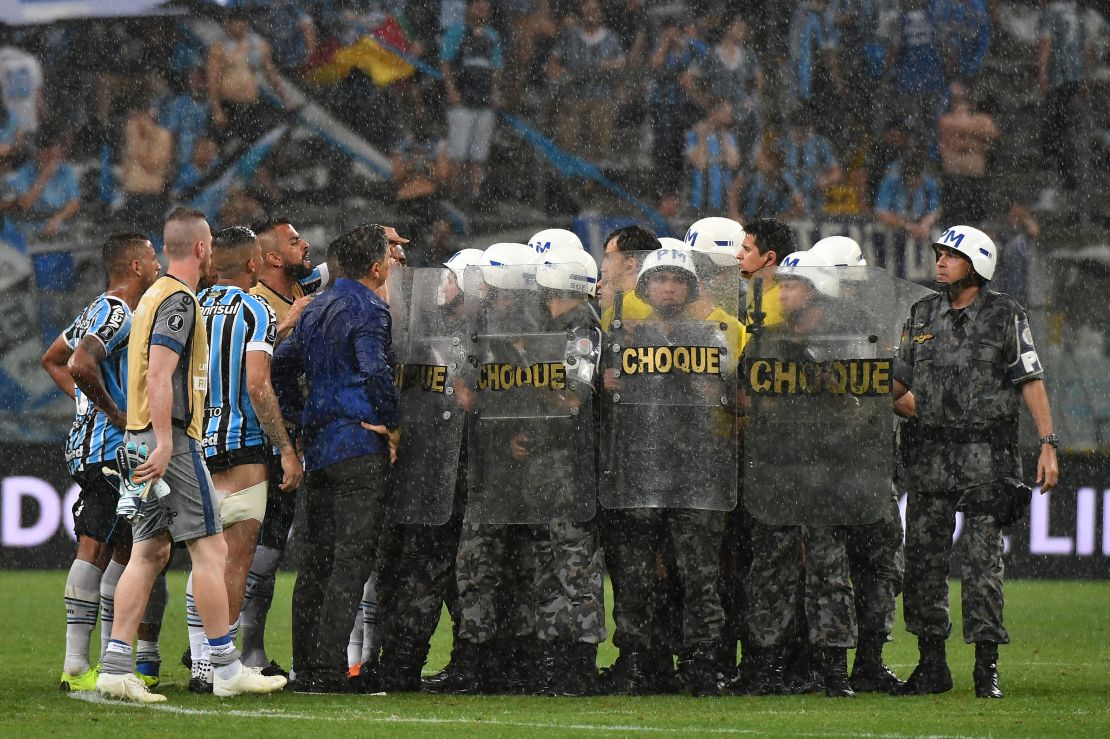
The Brazilian club’s players were further incensed by Cunha’s decision to send off defender Matheus Bressan for the debatable handball which led to the decision.
Gonzalo Martinez stepped up to slot home the penalty nervelessly in front of a partizan 55,000 sellout crowd in Porto Alegre, sending River through on away goals.

The second semifinal was less controversial but no less dramatic, as Boca – defending a 2-0 first-leg lead earned in Buenos Aires – traveled to Sao Paulo to face Palmeiras.
Boca took an early lead to seemingly put the tie to bed, but two early second-half goals from the home side turned the game on its head.
But prolific striker Dario Benedetto, so often Boca’s man for the big occasion, struck low into the bottom corner with unerring accuracy to set up the mostly hotly anticipated tie on the continent.
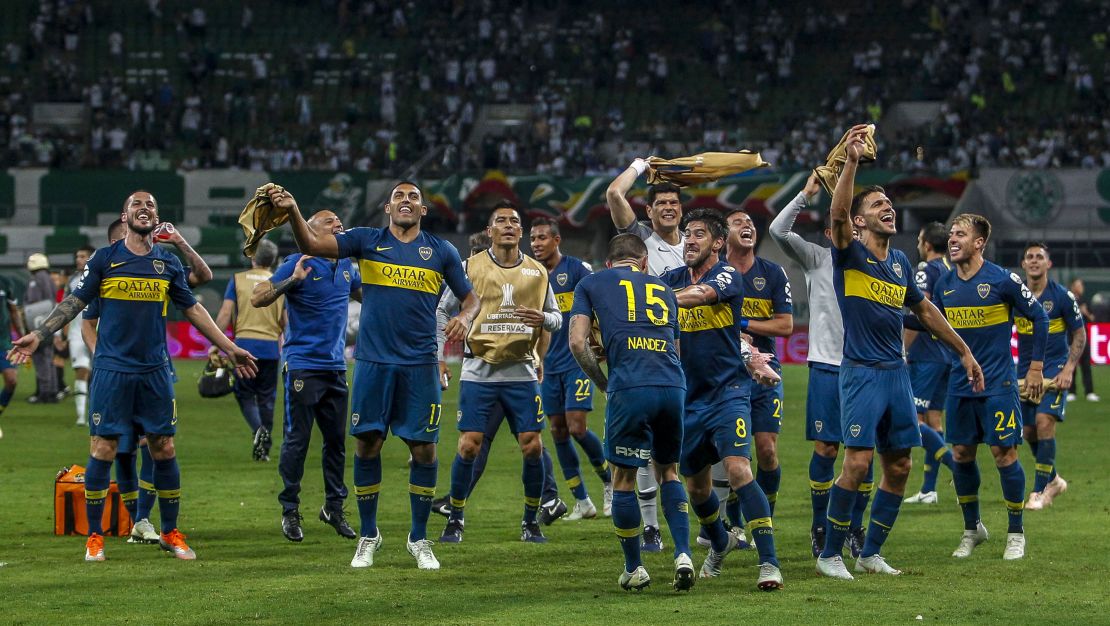
Bitter rivals
The fixture has a colorful – and violent – past and has come to be regarded as one of the biggest rivalries in world football.
Since the first official match in 1913 – which River won 2-1 – the two clubs have gone on to become the dominant forces in Argentina. Diego Maradona played for Boca in the early 1980s before signing for Spanish club Barcelona.
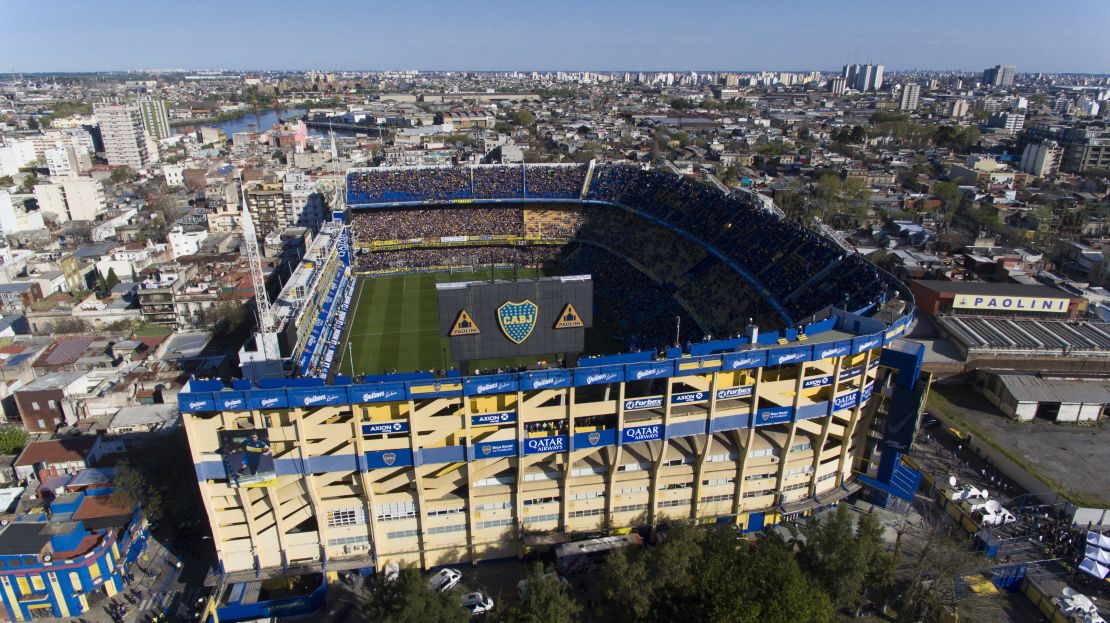
The sides have been hard to separate in the 105 years since, with Boca narrowly edging River 88-81 in victories. However, River have won 36 national league titles to Boca’s 33.
What started out as a small local rivalry in the working class La Boca neighborhood of Buenos Aires gradually grew to be the biggest in the country, with River gaining a reputation as the club for the rich and Boca as the working man’s team.
The darkest hour in River’s sporting history came in 2011 when the club was relegated for the first time in its history, something Boca fans will never let them forget.
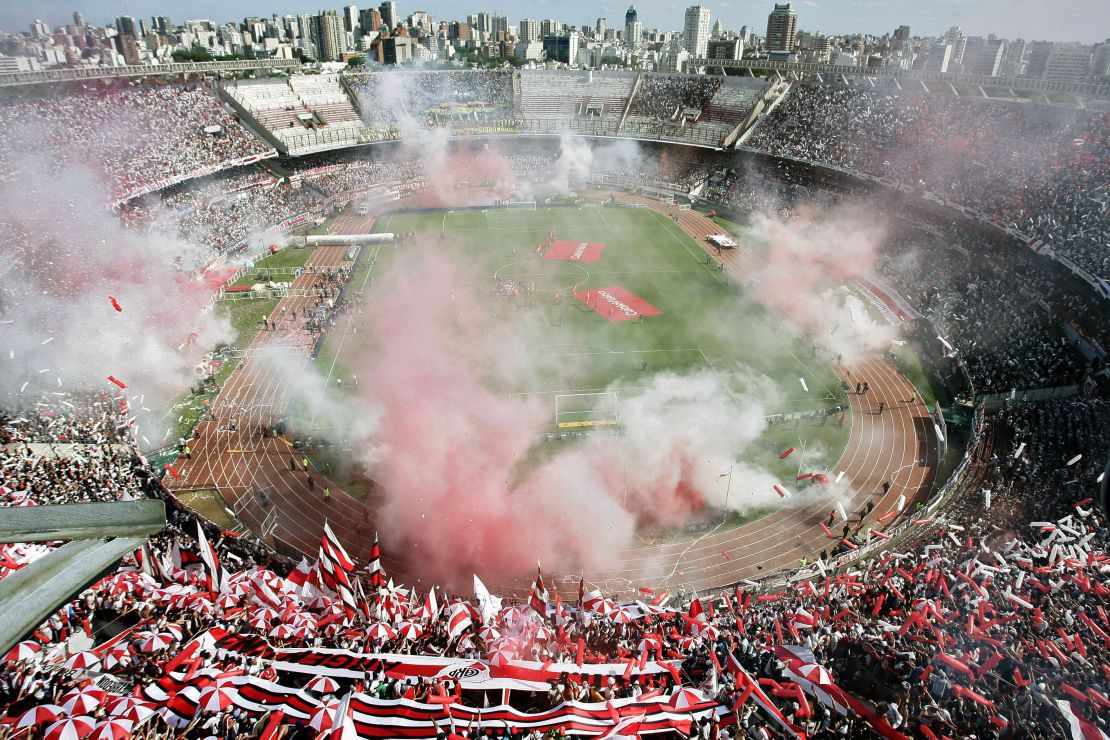
Following the relegation, fans had to wait 530 days for the next Superclasico to which Boca fans brought wreaths to mourn the death of River and sung “that stain will never be erased.”
Violence has come to mar several clashes in the past – as it has throughout the country’s football fixtures – and in 2015 the Superclasico was suspended early after four River players were sprayed with tear gas by a Boca fan as they emerged from the tunnel for the second half.
Football stadiums with a reputation for atmosphere
All four were taken to hospital and River were later awarded the victory and passage through to the Libertadores quarterfinals, eventually going on to win that year’s competition.
Two years earlier, another fixture at La Bombonera was halted for 15 minutes after riot police were brought in to deal with fighting in the stands.
Since 2013, there have been no away fans allowed in stadiums across Argentina after a Lanus fan was shot and killed by a policemen before a match at Estudiantes.
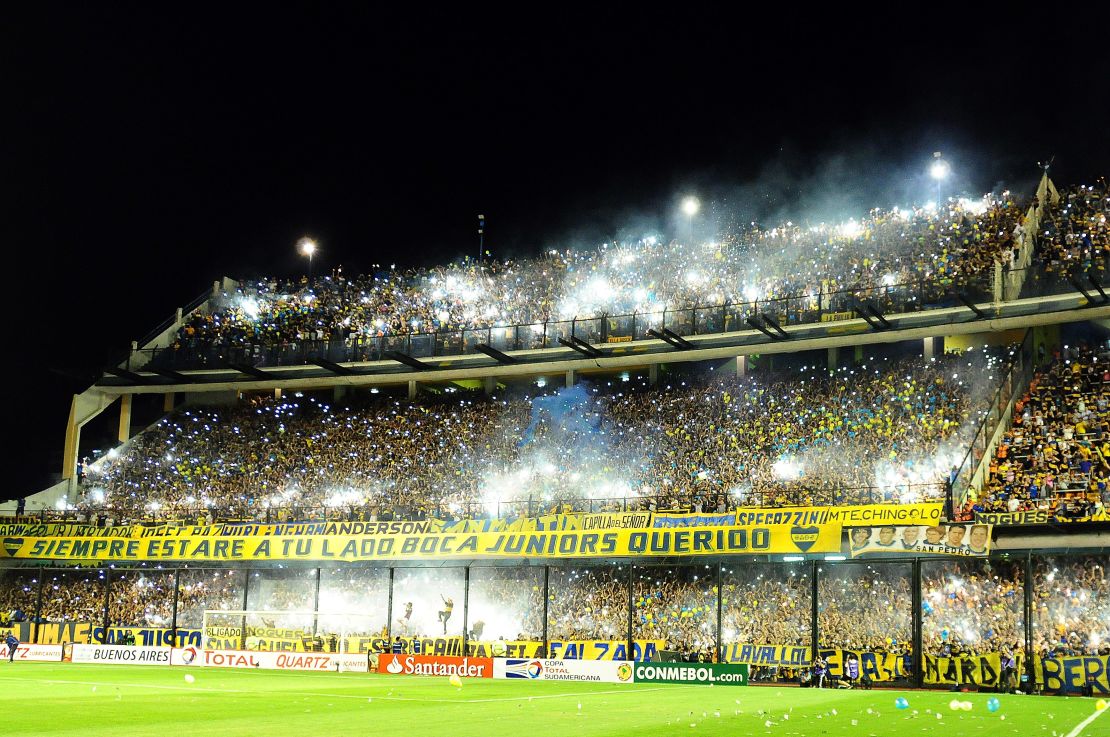
The ban has been at least partially overturned for the first time since, with the country introducing a new “Fan ID” system in an attempt to make stadiums safe for away fans again, though none of the “Big Five” – Boca, Independiente, Racing, River and San Lorenzo – will take part.
It’s rare for two teams from the same country to play each other in the Copa Libertadores final, much less two teams from the same city.
Whichever side wins the final will provide its fans with bragging rights for decades to come.



















